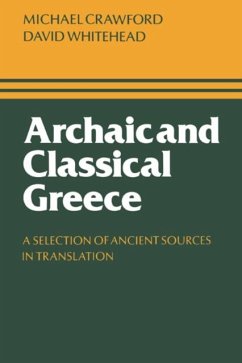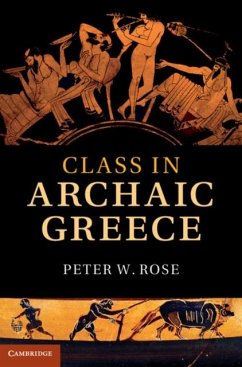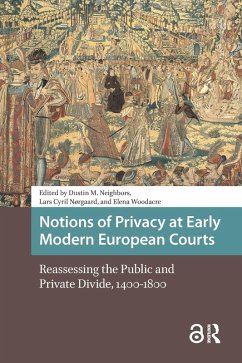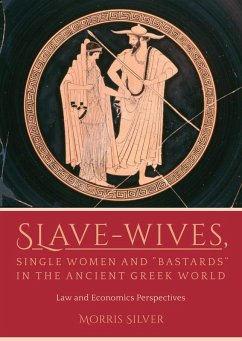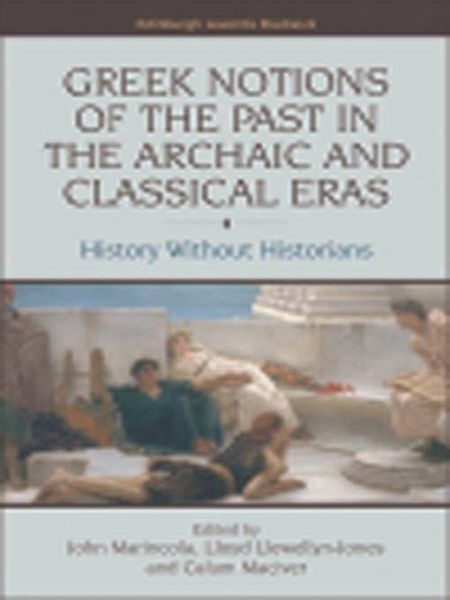
Greek Notions of the Past in the Archaic and Classical Eras (eBook, PDF)
History without Historians
Redaktion: Marincola, John; Maciver, Calum; Llewellyn-Jones, Lloyd
Versandkostenfrei!
Sofort per Download lieferbar
0,00 €
inkl. MwSt.
Weitere Ausgaben:

PAYBACK Punkte
0 °P sammeln!
A wide examination of the ways in which the Greeks constructed, de-constructed, engaged with and relied on their pastsThis volume in The Edinburgh Leventis Studies series collects the papers presented at the sixth A. G. Leventis conference organised under the auspices of the Department of Classics at the University of Edinburgh.As with earlier volumes, it engages with new research and new approaches to the Greek past, and brings the fruits of that research to a wider audience. Although Greek historians were fundamental in the enterprise of preserving the memory of great deeds in antiquity, the...
A wide examination of the ways in which the Greeks constructed, de-constructed, engaged with and relied on their pasts
This volume in The Edinburgh Leventis Studies series collects the papers presented at the sixth A. G. Leventis conference organised under the auspices of the Department of Classics at the University of Edinburgh.
As with earlier volumes, it engages with new research and new approaches to the Greek past, and brings the fruits of that research to a wider audience. Although Greek historians were fundamental in the enterprise of preserving the memory of great deeds in antiquity, they were not alone in their interest in the past. The Greeks themselves, quite apart from their historians and in a variety of non-historiographical media, were constantly creating pasts for themselves that answered to the needs - political, social, moral and even religious - of their society.
In this volume eighteen scholars discuss the variety of ways in which the Greeks constructed de-constructed, engaged with, alluded to, and relied on their pasts whether it was in the poetry of Homer, in the victory odes of Pindar, in tragedy and comedy on the Athenian stage, in their pictorial art, in their political assemblies, or in their religious practices. What emerges is a comprehensive overview of the importance of and presence of the past at every level of Greek society.
In the final chapter the three discussants present at the conference (Simon Goldhill, Christopher Pelling and Suzanne Saïd) survey the contributions to the volume, summarise its overall contributions as well as indicate new directions that further scholarship might follow.
This volume in The Edinburgh Leventis Studies series collects the papers presented at the sixth A. G. Leventis conference organised under the auspices of the Department of Classics at the University of Edinburgh.
As with earlier volumes, it engages with new research and new approaches to the Greek past, and brings the fruits of that research to a wider audience. Although Greek historians were fundamental in the enterprise of preserving the memory of great deeds in antiquity, they were not alone in their interest in the past. The Greeks themselves, quite apart from their historians and in a variety of non-historiographical media, were constantly creating pasts for themselves that answered to the needs - political, social, moral and even religious - of their society.
In this volume eighteen scholars discuss the variety of ways in which the Greeks constructed de-constructed, engaged with, alluded to, and relied on their pasts whether it was in the poetry of Homer, in the victory odes of Pindar, in tragedy and comedy on the Athenian stage, in their pictorial art, in their political assemblies, or in their religious practices. What emerges is a comprehensive overview of the importance of and presence of the past at every level of Greek society.
In the final chapter the three discussants present at the conference (Simon Goldhill, Christopher Pelling and Suzanne Saïd) survey the contributions to the volume, summarise its overall contributions as well as indicate new directions that further scholarship might follow.
Dieser Download kann aus rechtlichen Gründen nur mit Rechnungsadresse in A, B, BG, CY, CZ, D, DK, EW, E, FIN, F, GR, HR, H, IRL, I, LT, L, LR, M, NL, PL, P, R, S, SLO, SK ausgeliefert werden.




